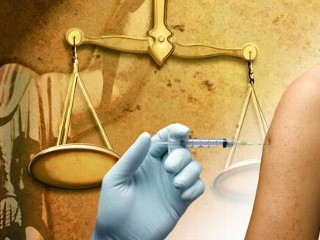In a 6-2 decision, the Supreme Court voted to protect pharmaceutical companies from liability when their vaccines cause debilitating injuries and death. The high court majority considers vaccines "unavoidably unsafe" and was worried about drug makers being sued and obligated to compensate their vaccine victims. Instead of opting to protect children, the Supreme Court chose to safeguard the financial interests of the multi-billion dollar vaccine industry.
The ruling was a defeat for Hannah Bruesewitz, who suffered from a severe brain injury, developmental delays, and a lifelong seizure disorder after receiving a mandated DPT vaccine. She was denied compensation by the U.S. Court of Claims, which administers the federal Vaccine Injury Compensation Program.
After being rejected by the U.S. Court of Claims (following several years of adversarial litigation), Hannah's attorneys sued in civil court, providing evidence that the DPT vaccine manufacturer, Wyeth-Lederle, had the technology to produce a less reactive, purified pertussis vaccine but declined to do so. However, the Supreme Court has now declared that justice cannot be sought in American courtrooms.
According to Barbara Loe Fisher of the National Vaccine Information Center, "This is a sad day for all Americans forced by law to use dozens of doses of vaccines or be barred from school or health insurance or employment. The only leverage left to American consumers to ensure that vaccines with the fewest health risks are produced is to oppose vaccine mandates and work to defend vaccine exemptions in all public health laws."
|
|







